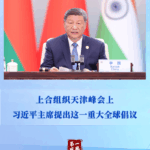Qingyuan’s civil affairs department improperly conducted assessments on social work service stations, while Chaozhou City and Xiangqiao District’s housing and urban-rural development departments formulated documents with excessive and rushed consultation processes… Recently, the Guangdong Provincial Office for Special Work on Combating Formalism to Reduce Burdens on Grassroots Units, in conjunction with the Provincial Commission for Discipline Inspection Office, publicly reported two typical cases, requiring all regions and departments to learn from these examples, conduct comprehensive inspections, and implement systematic rectifications.
Formalism is a persistent chronic issue, like “psoriasis”—it often recurs, changes forms, becomes hidden or disguised, and experiences resurgences. The public reporting of these two cases sends a strong signal that work style construction will maintain strict standards with unwavering rigor, while also indicating that some local governments and departments still fall short in combating formalism to reduce burdens on grassroots units. There are deficiencies in implementing streamlined and optimized grassroots assessment requirements, excessive and rushed document consultation processes, and inappropriate work methods that increase the burden on grassroots units.
The fight against formalism cannot relax for a moment or retreat half a step. On one hand, we must closely monitor recurring and stubborn problems, maintaining strict standards, measures, and atmosphere over the long term. On the other hand, we must pay attention to new variants and phenomena, accurately identifying them, striking as soon as they appear, strictly investigating, and creating strong deterrence. In summary, we should focus on addressing the most prominent issues and those that cadres and the masses feel most strongly about.
Work style construction is a protracted battle. Only by continuously reducing burdens on grassroots units can we enable grassroots cadres to focus more energy on promoting development and serving the people.
Qingyuan civil affairs department
The Qingyuan Civil Affairs Department is a local government agency in Qingyuan City, China, responsible for social administration and public services. Its history is tied to the development of China’s civil affairs system, which focuses on social welfare, community building, and disaster relief. The department plays a key role in implementing national policies to support citizens’ well-being at the municipal level.
Chaozhou City housing and urban-rural development department
The Chaozhou City Housing and Urban-Rural Development Department is a municipal government agency responsible for urban planning, construction management, and housing regulation in Chaozhou, Guangdong. Historically, it evolved from earlier urban management bodies to address the city’s growing infrastructure needs while preserving its cultural heritage. Its work includes overseeing building projects, urban renewal initiatives, and the maintenance of Chaozhou’s distinctive architectural traditions.
Xiangqiao District housing and urban-rural development department
Xiangqiao District Housing and Urban-Rural Development Department is a local government agency in Chaozhou City, Guangdong Province, China. It oversees urban planning, construction projects, and housing management within its jurisdiction, implementing regional development policies. The department’s functions reflect China’s ongoing urbanization initiatives and infrastructure modernization efforts.
Guangdong Provincial Office for Special Work on Combating Formalism to Reduce Burdens on Grassroots Units
The Guangdong Provincial Office for Special Work on Combating Formalism to Reduce Burdens on Grassroots Units is a government body established in recent years as part of China’s nationwide campaign against bureaucratic inefficiency. Its primary mission is to reduce unnecessary paperwork, meetings, and inspections that overburden local-level officials and workers. This initiative reflects a broader administrative effort to improve governance efficiency and redirect focus toward substantive public service.
Provincial Commission for Discipline Inspection Office
The Provincial Commission for Discipline Inspection is a Chinese Communist Party agency responsible for enforcing internal discipline and anti-corruption measures within provincial-level governments. These offices were established as part of the party’s disciplinary system to monitor party members and officials for misconduct. Their role has expanded significantly under President Xi Jinping’s anti-corruption campaign that began in 2012.

